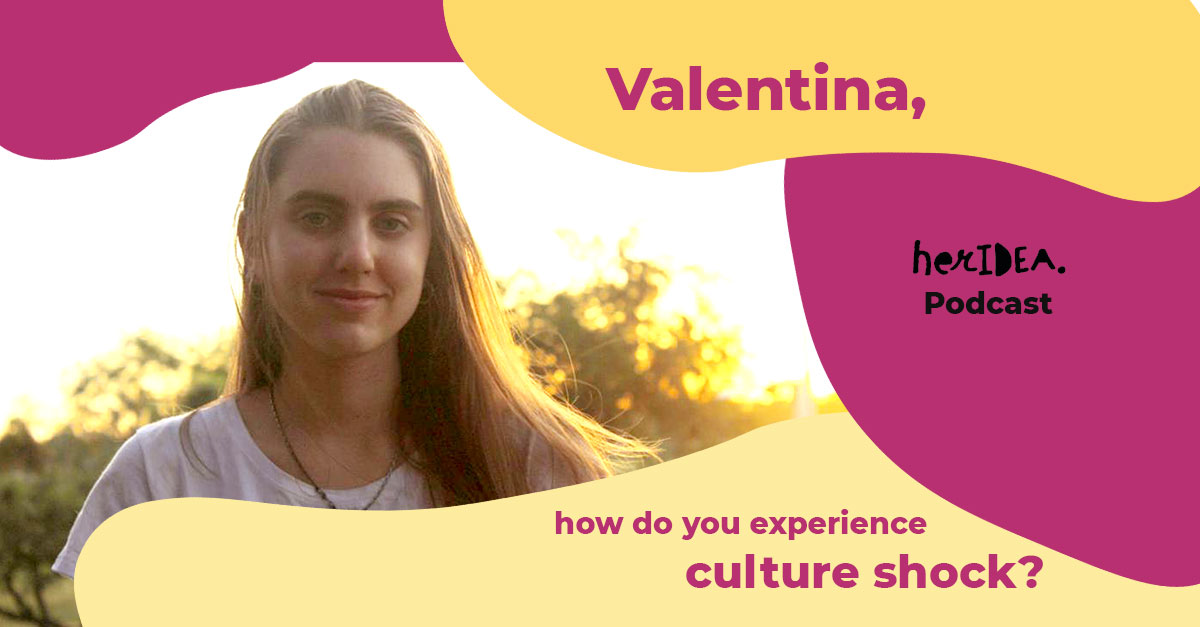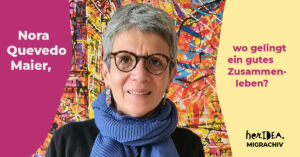„I remember, when I first stepped into the airport, I felt very happy. I feel, like I was in another world. In that moment, I felt very strong and I felt, that I was ready to start my new life.“
Valentina is 21 years old and studies International Business Management at Furtwangen University at the Villingen-Schwenningen Campus. In 2021, Valentina came from Argentina to Germany together with her sister and her mother. Her father is still in Argentina and will also come to Germany if the family succeeds in the adjustment process.
„I knew, that changing your culture is like escaping of your comfort zone, and try to adapt to a new culture. I knew, that it was going to be difficult, yes, absolutely, but yes, I tried to make new friends, to connect with people from the first time, even when sometimes I feel, that I am not able or I can’t.“
4 Phases of Culture Shock
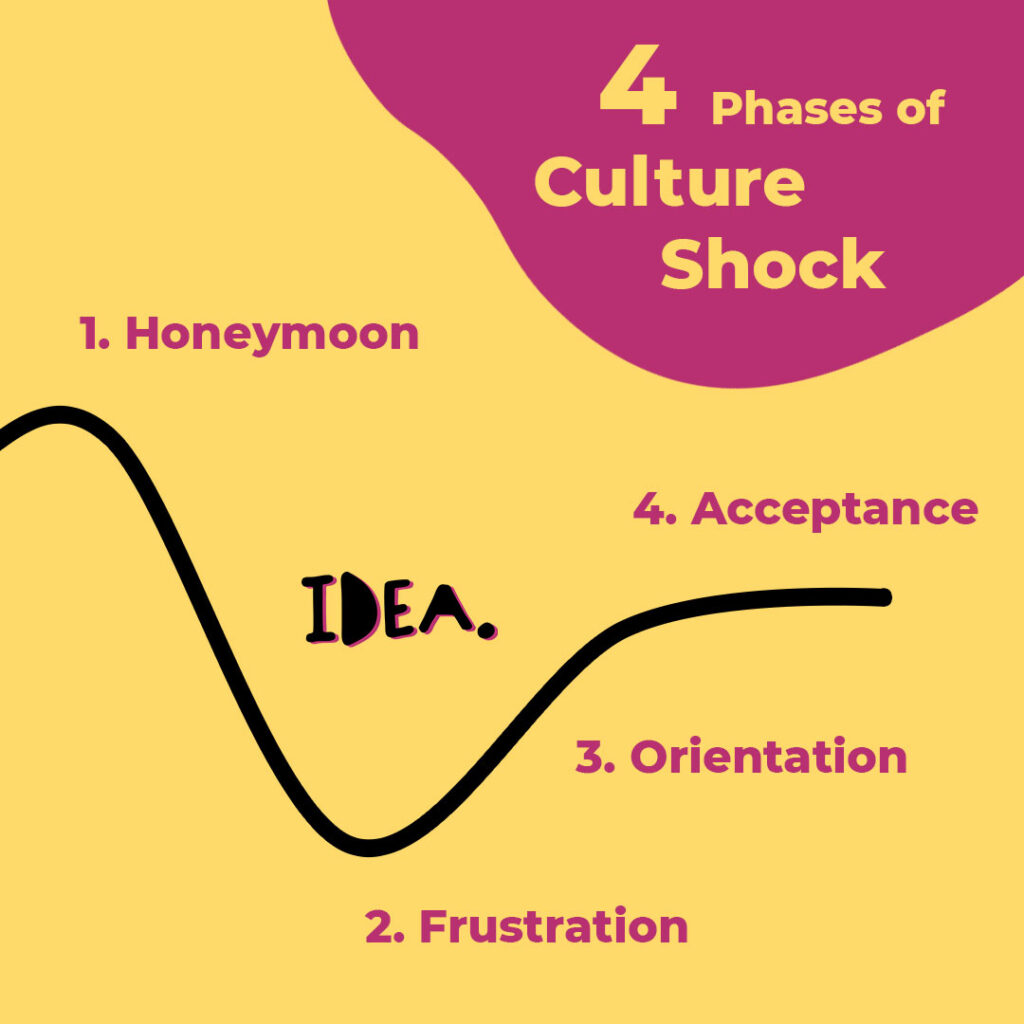
In the process of getting to know a new culture, the so-called culture shock often occurs. When a person moves from a familiar environment to a completely foreign culture, it often leads to feelings of fear, loneliness and uncertainty. Culture shock has two faces: One is the new country, the new culture. On the other hand, the home country, the culture left behind.
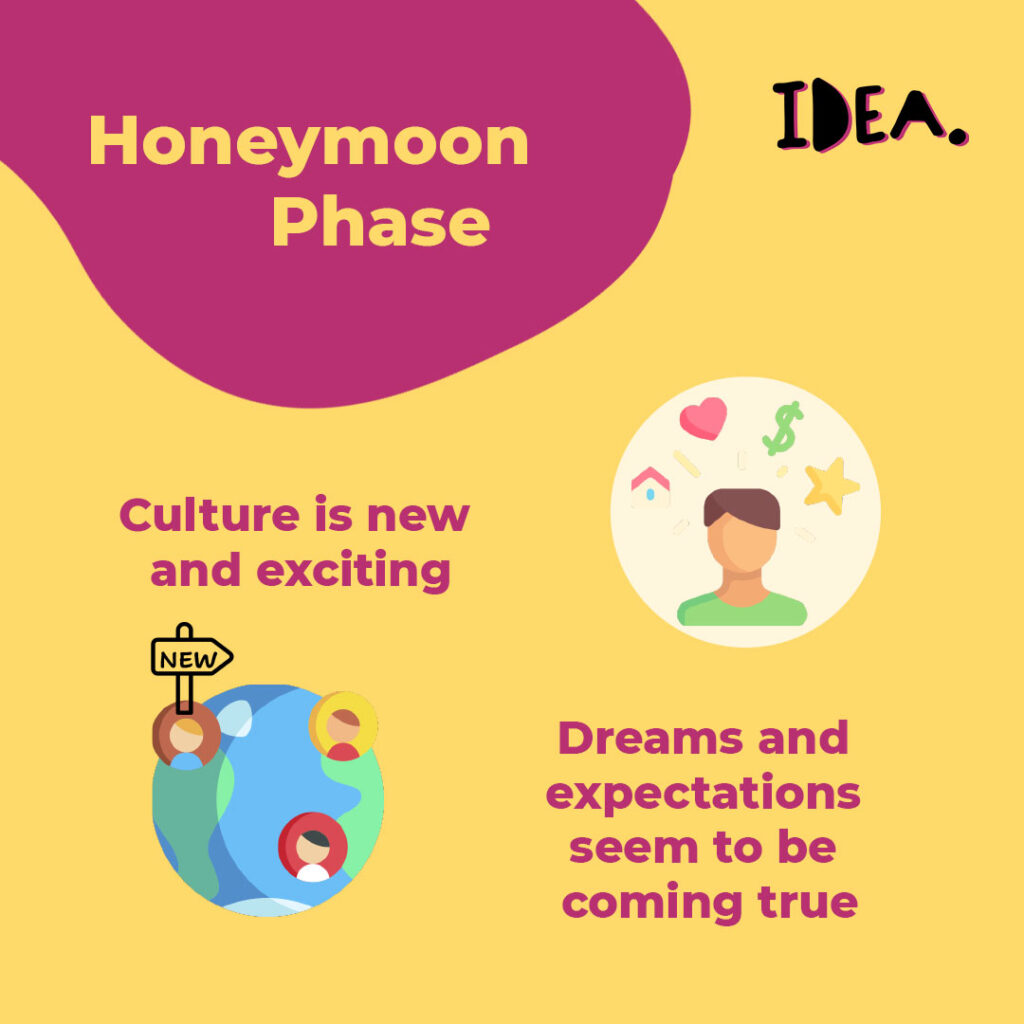
In the first phase, everything is new and fascinating. Everything is exciting and interesting. On the one hand, you focus on the similarities between the home country and the host country. But you are also aware of the differences between the old and the new culture, but you see them as positive and beautiful.
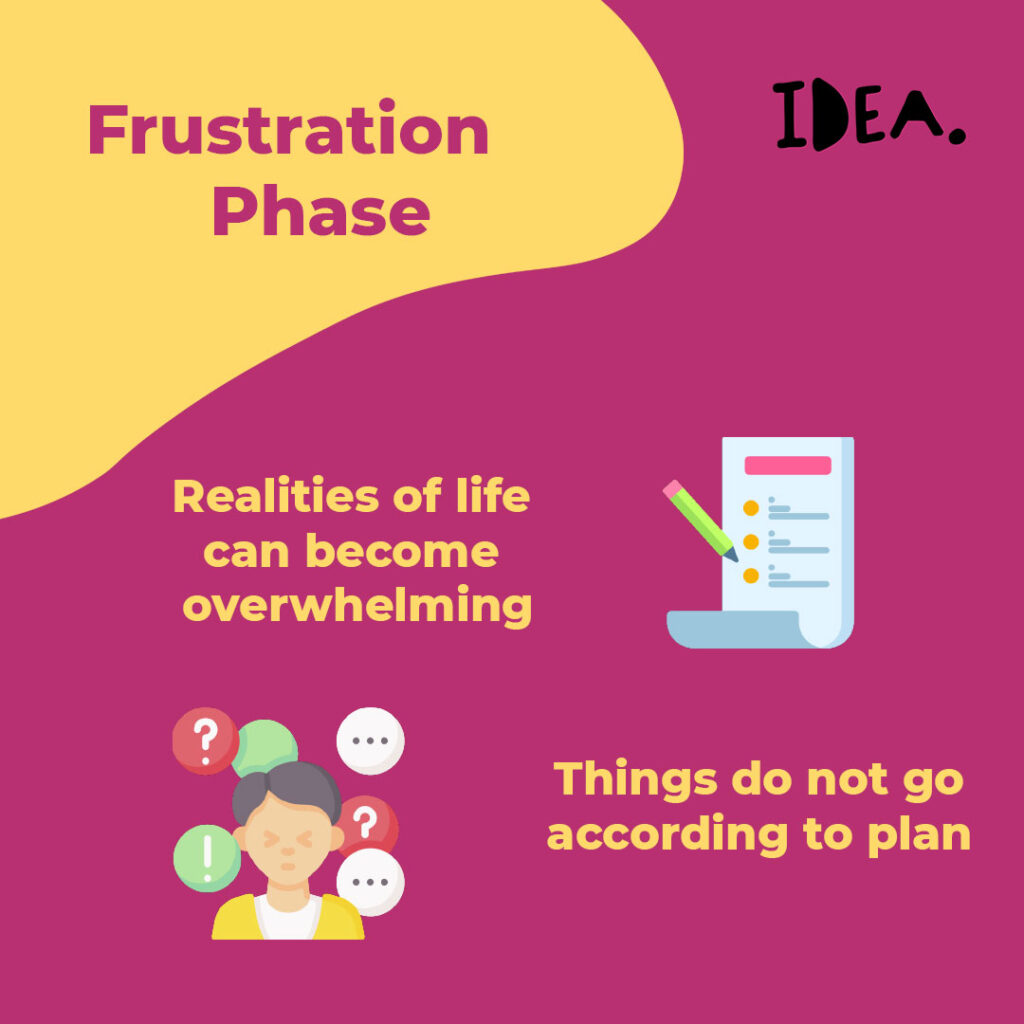
The second phase is to suddenly get uncomfortable with the new country, the people and their way of life. It can also be about changing people’s behavior as it was done in the old culture. An important step in this phase is also to idealize the old life. Everything you have now, the food, the working hours, the language, etc., is worse than in your country of origin. Feelings of loneliness and insecurity are also part of this phase.
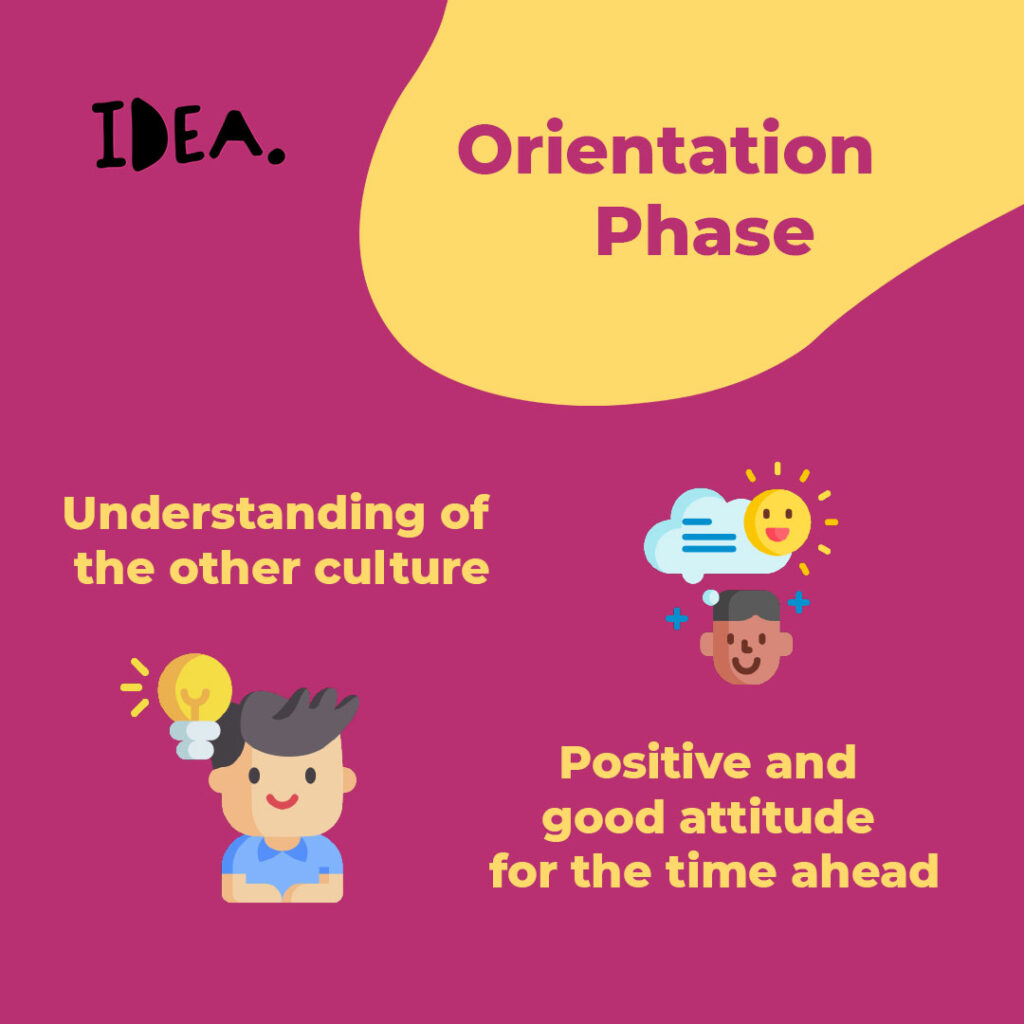
Acceptance begins in the orientation phase. Understanding of people’s culture and actions appears. They are also respected, regardless of whether you think they are right or wrong. One feels better in the new environment and has a positive and good attitude for the time ahead.
It may happen that phases two and three are repeated several times.
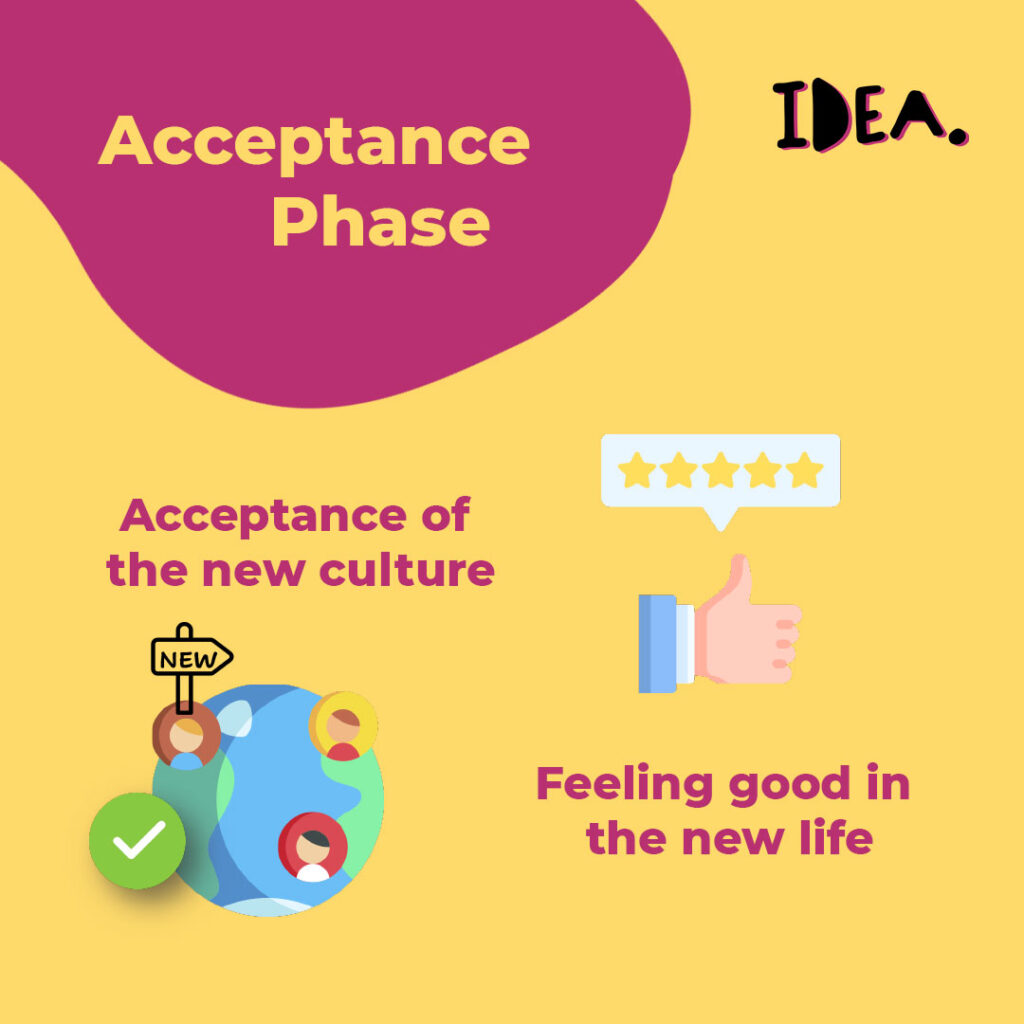
In the fourth and final phase, you are finally able to cope with both cultures. The acceptance of the new culture is complete. You begin to feel at home in your new life and no longer feel lonely and abandoned.
Podcast herIDEA - sie, engagiert, diverskulturell
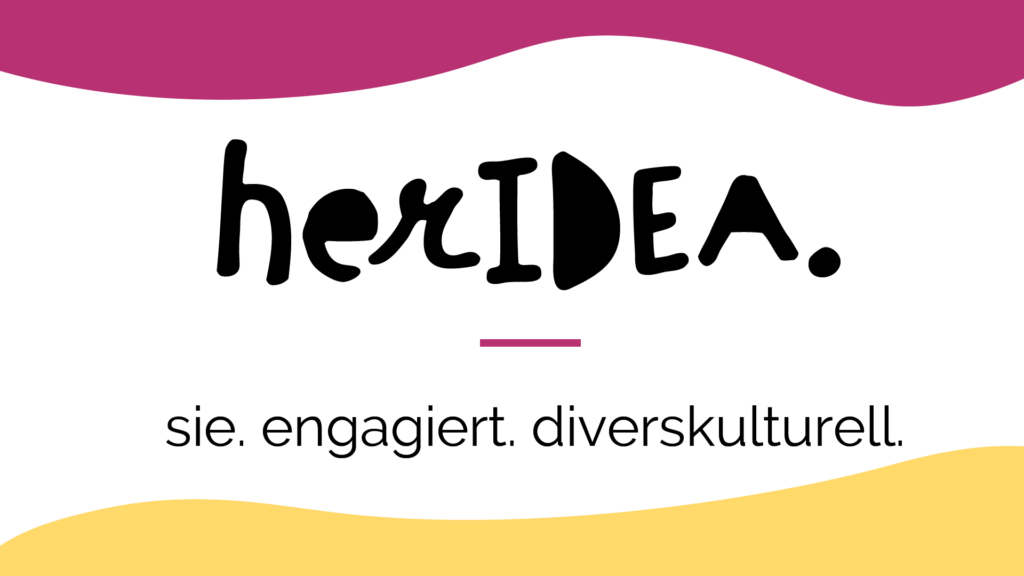
Im Podcast „herIDEA – sie, engagiert, diverskulturell“ erzählen Migrantinnen ihre Geschichten in der Reihe MIGRACHIV.
Abonniere herIDEA auf den gängigen Podcast-Plattformen: Spotify | Deezer | Apple Podcast
Das Forschungsprojekt IDEA – Inklusives Digitales Erinnerungsarchiv – ist ein Oral History-Projekt von und mit gesellschaftlich engagierten Frauen mit internationaler Geschichte. Sie setzen sich ein für mehr Sichtbarkeit, Teilhabe und Chancengerechtigkeit.

